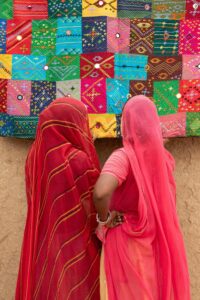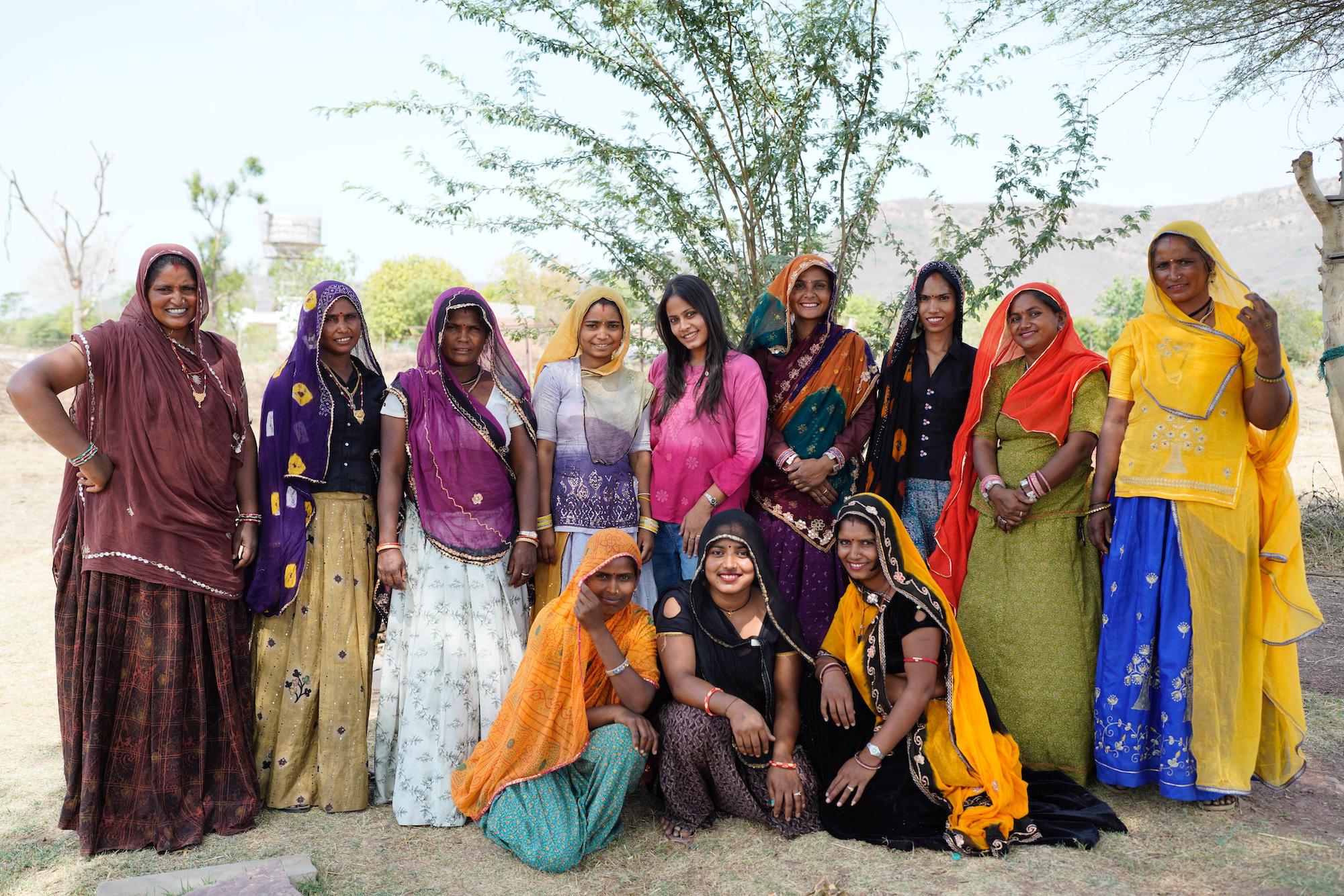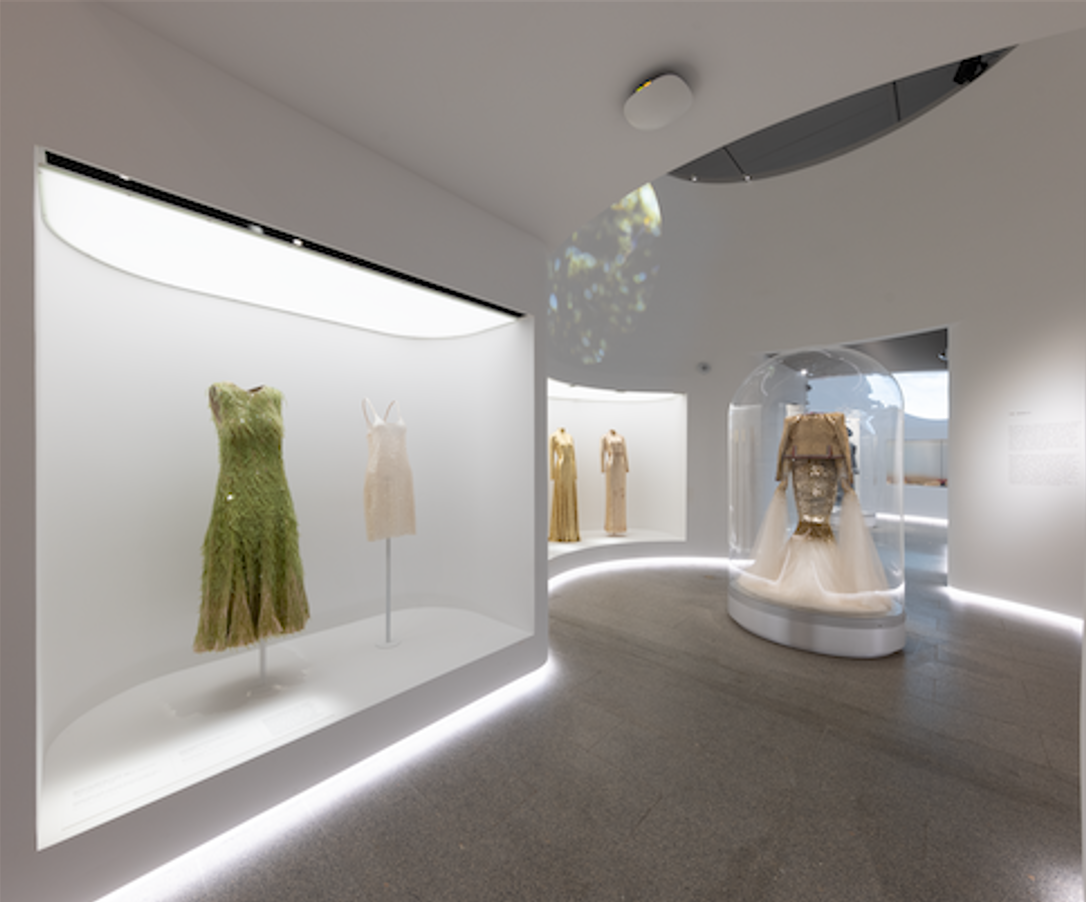By Juhi Sharma, Founder of Vamika – a designer and creative individual working to preserve endangered crafts through community-led collaboration.
In the dry, golden lands of Rajasthan, India, where the wind carries stories instead of silence, I found myself drawn to a community that the world had nearly forgotten — the Kalbelia. Known in the past as snake charmers, they are dancers, musicians, and women of incredible skill. Their traditions live in the rhythm of footsteps, the movement of hands, and the stories passed from one generation to the next.
For decades, the Kalbelia community lived on the edges of society. They lived without land rights, were excluded from formal education, and denied access to stable livelihoods. The women stitched quilts using old fabric, not to sell, but to mark life’s milestones — weddings, births, family memories. These quilts held their identity, their history, and their hope.
But the outside world never noticed. Their art was unseen. Their voices were unheard.

Juhi Sharma, collaborator and founder of Vamika.
Slowly, that silence began to break
A group of Kalbelia women began sharing their quilts with the world — not just as beautiful items, but as symbols of who they are. Their craft became their voice.
With the support of Vamika, the craft-led initiative I founded to centre the community’s knowledge and dignity, these women have stepped beyond their villages and into spaces that once felt unreachable. Their work has been showcased at the Red Fort Indian Art, Architecture and Design Biennale, inaugurated by the Honourable Prime Minister of India, and featured in international publications. Some of them have conducted workshops for design students and craft enthusiasts. Their next collection will travel to Santa Fe, USA, for one of the world’s most respected folk art markets. For many, these were firsts. First time leaving the village. First time being seen. This isn’t about giving — it’s about finally recognising their worth.
This journey is not only empowering Kalbelia women. It is uplifting the entire community. With stable and respectful livelihood opportunities, women are becoming earners and leaders. Children, especially daughters, are returning to school. Men are participating with pride. Identity is no longer a quiet inheritance. It is a shared strength.
Women who once only stitched in private are now leading workshops. They are teaching others. They are setting examples. Their livelihood has brought them pride, purpose and new possibilities.
And through all this, they’ve never lost their roots. Their quilts are made with fabric, local wool, and no waste. Every design is inspired by nature — flowers, animals, and patterns from their environment. They have practiced sustainable living for generations not because it was trendy, but because it was their way of life.
They don’t follow trends. They follow the truth.

The Kalbelia women aren’t looking to be rescued, they are ready to be recognised
Their story reminds me that the future of fashion isn’t just about what we wear. It’s about how and why we create. It’s about honouring those who’ve kept these traditions alive, even without recognition.
As a designer, I didn’t come to lead. I came to listen. To learn. And to walk beside them.
Because the most powerful designs aren’t made in studios. They’re stitched in homes, sung in stories, and passed down through generations just like the Kalbelia women have done, quietly and beautifully, for years.
Now, finally, the world is listening.
Photos : Zishan
Read more about conscious and ethical fashion in our magazine




